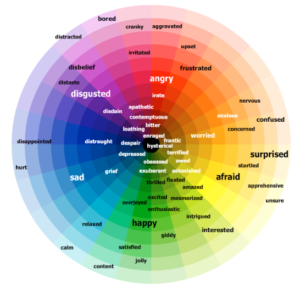I suppose few people understand how important talking about dying with their parents as much as I do. As the founder of SevenPonds, I have been deeply into the topic of death almost every day for the past six years. And one of the topics we write about a lot is how to start that “death” conversation with your parents.
On one hand, my 88-year-old dad is happy to discuss the topic. But my mom, who is 86, has been resistant to talking about it–to my complete surprise! And truthfully, even with all my knowledge, it hasn’t been easy for me either.
Then last winter, when I visited my parents in Florida for the holidays, I surprised my mom by announcing we would play a game. The game was “Go Wish” cards, and they were like a miracle. My mom began talking about her end of life wishes — at least that specific day.
But then last week I found myself on the phone with her. We were chatting about the usual things, when suddenly out of the blue she said, “Just the other day, your father and I were discussing which of us will go first.” It was like the floodgates opened. Not only was she talking about dying — but she brought it up so casually! I was utterly stunned.
Suddenly the shoe was on the other foot. Her words were so shocking for me that I failed to actually register the rest of of what she said. Hearing my mom talking about dying brought the fact that she was really going to die someday to life for me. And it set me spinning emotionally.
I worked so hard to get her to talk. But when she did, I was not ready to hear it. Needless to say, I was frustrated with myself.
I was surprised that my mother’s statement hit me so intensely. But, truth be told, each of us experiences a wide range of emotions, and we’re never sure what will come up or when. In fact, experts are starting to map our emotions and analyze how they impact us as as we die.
Emotions are also beginning to have a place in discussions about our hospital systems, as evidenced by the upcoming Endwell Symposium in San Francisco. Billed as a “gathering of design, tech, health care and activist communities with the goal of generating human-centered, interdisciplinary innovation for the end of life experience” it points to a new willingness to treat life-limiting illness holistically, with as much attention to a person’s quality of life as their physical state.
No one said talking about death and dying was easy. Thankfully, our culture is now beginning to become comfortable with it. But no matter how much we talk, death and dying will always be an emotionally difficult part of life. As feeling human beings, each of us will ultimately have to wrangle with our own emotions around loss.

 Talking About Dying with Your Parents is Difficult
Talking About Dying with Your Parents is Difficult




 First the Wealth Gap, Now the U.S. Has a Growing Health Gap
First the Wealth Gap, Now the U.S. Has a Growing Health Gap
 How to Comfort A Dying Loved One
How to Comfort A Dying Loved One
 Our Annual Seven Holiday Gifts for Someone Who Is Grieving, 2024 Edition
Our Annual Seven Holiday Gifts for Someone Who Is Grieving, 2024 Edition














